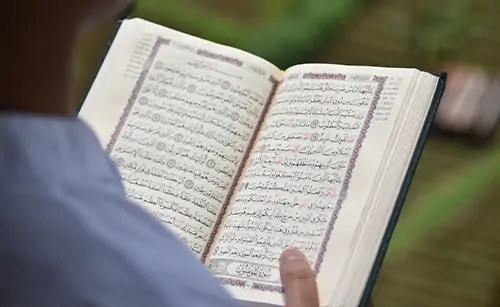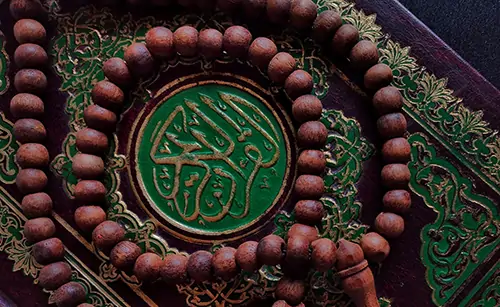What Does Insha Allah Mean in Islam?

Insha Allah (also written as Inshallah or In sha Allah) is one of the most commonly used Islamic phrases in Muslim life. While it is often translated as “God willing,” its meaning in Islam goes far beyond a simple expression. Muslims say Insha Allah to acknowledge Allah’s complete control over future events and to express humility, faith, and trust in His decree.
In this guide, we explain what Insha Allah means, when and how to use it correctly, and address common misconceptions surrounding the phrase.
What Is the Meaning of Inshaallah?
Insha Allah means “if Allah wills” or “God willing.” Muslims use this phrase when talking about future events, believing that nothing happens unless Allah permits it. It’s a sign of faith, humility, and submission to divine will. Understanding the definition of Inshallah is essential to appreciating its spiritual importance and cultural value in daily conversation.
Insha Allah Meaning in English
The meaning of Inshaallah in English is a hopeful yet humble statement: “God willing.” It is often used when someone intends to do something in the future. Unlike a firm commitment, it reflects trust in Allah’s will, acknowledging that only Allah can make things happen.
Origin and Arabic Meaning of Insha Allah
The phrase In shā Allāh consists of three Arabic words:
- In (if)
- Shāʾ (wills)
- Allāh (God)
Together, they form a phrase that is deeply rooted in the Quran:
“And never say of anything, ‘Indeed, I will do that tomorrow,’ except [when adding], ‘If Allah wills.’”
— Surah Al-Kahf (18:23–24)
This shows the importance of acknowledging God’s will in all matters.
How to Use Inshallah in Daily Life
Muslims use Insha Allah in everyday situations to remind themselves that all plans depend on Allah’s will. It can be used naturally in daily conversations, such as when discussing studies, work, family matters, or long-term goals.
For example, a parent may say, “My child will complete the Quran this year, Insha Allah,” or a student may say, “I will prepare for my exam tomorrow, Insha Allah.” Using the phrase in daily life nurtures patience, humility, and reliance on Allah while encouraging sincere intention.
When Should You Use Insha Allah?
A Muslim should say Insha Allah when referring to any future plan or intention. Examples:
- “I will attend the meeting tomorrow, Insha Allah.”
- “We’ll complete this task by next week, Insha Allah.”

Understanding when to say Inshallah helps believers remember their dependence on Allah in all things.
Why Do Muslims Say In sha Allah?
Muslims say Inchallah because it reflects their belief in tawakkul (trust in Allah). It is not just a cultural habit but a reminder that humans can plan, but only Allah decides. Saying Insallah also prevents arrogance or overconfidence in one’s own ability to act.
if you want to learn more about Islam, then join our Islamic course in which we learn a lot of things.
Is It Permissible to Say Insha Allah?
Yes, not only is it permissible — it is recommended in Islam. The Quran commands believers to say “Insha Allah” when talking about future events. The Prophet Muhammad ﷺ also encouraged its use.
Hadith Reference:
“If anyone says: I will do such and such tomorrow, let him add: If Allah wills.”
(Sahih Muslim)
Mashallah or Inshallah?
While Inshallah means “If Allah wills,” Mashallah means “What Allah has willed.”
- Inshallah is used when referring to future actions.
- Mashallah is used to express appreciation or admiration for something already done.
For example:
- Example of Mashallah: You’ve done very well, Mashallah.”
- Example of Inshallah: You’ll succeed in your exams, Inshallah.”
- Example of Inshallah: I hope for the birth of a healthy baby, inshallah.
- Example of Mashallah: After having given birth, Mashallah, what a beautiful, healthy baby.
Knowing the difference helps avoid confusion in conversation and expression.
Is Insha Allah Only Used by Muslims?
While Inchallah is primarily used by Muslims, the expression is also common among Arabic-speaking Christians and Jews. However, in Islam, it holds a deeper spiritual and religious meaning as it’s rooted in Islamic theology and Quranic guidance.
Different Spellings and Misinterpretations
You may come across many spellings:
- Inshallah
- Insha Allah
- Inshaallah
- Insallah
- Inchallah
- Inshalla
Despite the variations, they all point to the same belief. Misinterpretations, like using Inshalla as an excuse or delay tactic, go against its intended meaning. Islam encourages using it sincerely with full belief in Allah’s will.
Insha Allah vs. God Willing
Insha'Allah and God willing may seem similar, but the former is uniquely Islamic. It’s not just a polite phrase; it’s an act of faith. Insha Allah is based on Quranic revelation and Prophetic guidance, making it far more than just a linguistic equivalent.
Conclusion
Understanding the meaning and proper use of Insha Allah strengthens a Muslim’s faith and reminds believers to rely on Allah in every matter. This simple phrase carries deep spiritual significance and reflects humility, trust, and obedience to divine guidance.
For those who wish to deepen their understanding of Islam, Quran, and daily Islamic practices, Awwal Quran Academy offers structured online courses in Quran learning, Tajweed, Namaz, and Tafsir to help learners grow in both knowledge and faith.
FAQs About Insha Allah
What does Inshallah mean in Arabic?
It means “If Allah wills,” showing trust in divine will over future events.
Is Inshallah used only in Islam?
No, though Islamic in origin, it’s also used culturally by Arab Christians and Jews.
Can you say Inshallah in formal conversations?
Yes, Muslims say it in all types of conversations — formal or informal.
What is the difference between Inshallah and Mashallah?
Inshallah = If Allah wills (future),
Mashallah = What Allah has willed (present/past).
How is Inshallah written in Arabic?
It is written as: إن شاء الله
Is there an abbreviation for Inshallah?
Though often shortened in informal chats (e.g., "IA"), it's better to use the full form.
Is it okay to say Inshallah jokingly?
Islam encourages sincerity. Saying Insha Allah sarcastically or without meaning weakens its spiritual value.














